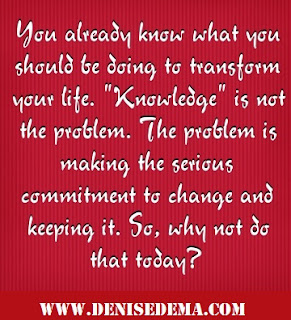Do you often feel an enormous amount of pressure to produce more? No matter how efficient you are now, it’s important to always look for ways to increase both the quality and quantity of positive results.
There are significant factors that hold us back from getting positive results, but there are ways to improve on these factors, to unlock your potential and become an unstoppable force in whatever you’re trying to achieve.
What influences productivity?
There are factors that contribute to a loss or gain of productivity:
- Criticism: Both positive and negative feedback have been shown to increase productivity. Conversely, nonconstructive, negative feedback damages work output and quality.
- Stress: Less stressed People produce more (and higher quality) work than their stressed-out counterparts.
- Energy: Not surprisingly, having lots of energy results in higher production.
- Technology: With the right tools and business processes, you can transform a good team into an unstoppable one.
- Purpose: With measurable goals and an understanding why you do something, you’ll work more consistently and at a higher standard.
- Attitude: Happy people work more and produce better results.
- Personal Bias: Different people work better under different conditions.
- Distractions: Obviously.
Here are some techniques to help you increase your output while maintaining a high standard:
1. Criticism
Criticism is an essential aspect of increasing your productivity. A great rule to follow is: “For every mean thing you say, say 10 nice things.”
Oddly enough, this holds true when motivating your team. When you structure criticism, lead with several things you feel they’re doing well, and then tell them one or two things you feel they can improve upon.
Present the feedback in a constructive way. For example, you could say, “I feel that this could be improved” or “I think you may find it more effective to do it like this. What are your thoughts?” Notice the emphasis on “I”—don’t accuse your team of doing things that aren’t to your standard. Similarly, by asking them how they’d improve it, you create a dialogue to ensure they don’t feel like they’re being scolded.
Regularly ask your team what they feel you do well and what you can improve upon. Being a leader doesn’t mean you’re perfect; it just means you make the decisions.
2. Stress
Stress is brutal on people’s psyche. Interestingly enough, our brains have yet to evolve to realize that coming face to face with a saber-toothed tiger is not the same as completing a piece of work on time. But the brain treats both situations as the same.
This means that a stressed individual’s brain reverts back to its primitive functions of survival and short-term gains. He or she will, therefore, make less future-orientated decisions and be unable to access higher brain functions, such as creativity, innovation and advanced language.
What this leads to is a lack of effective communication and an inability to critically analyze their own work. A good example of this is working overtime to complete a project without being able to take a break and relax. When you are able to look at your work again on a new day with a fresh mind you might see it from an entirely new perspective. Once stress levels decrease your able to produce better work.
The key thing to realize about stress is that it’s triggered when people feel a lack of control. To mitigate this in others and yourself, frequently show your team their impact on the company and place an emphasis on creating a solid work-life balance. For example, create a “no emails after 6 p.m.” rule, plan monthly work happy hours or organize frequent out-of-work activities.
3. Energy
Energy plays a huge role in productivity. You needn’t be as radical as enforcing a company-wide nap time. A better idea is to ensure you and your team has access to healthy snacks.
By “healthy” snacks, we’re talking about food that that hasn’t been overly processed. Fruit and whole grains are fantastic because they take longer for the body to break down, providing a consistent energy release.
Exercise also has been shown to increase both concentration and energy levels. It’s unlikely your team would abuse a “go for a 30-minute stroll if you feel sleepy” policy, as it’s a perk few businesses offer.
Energy levels will ebb and flow as the day goes on (lunchtime graveyard anyone?). Use this to your advantage by getting your team to do tasks that require a lot of mental energy in the morning. Then as 1 p.m. hits, ask them to do less demanding, more enjoyable tasks.
4. Technology
Having a slow computer kills productivity in ways that a lot of people don’t even realize. Obviously there’s the cost of being unable to work while programs open, internet pages load and data transfers.
But there’s also the hidden mental cost of getting distracted by things while you wait for something to open, load or transfer. What do you do when you’re waiting? Scroll mindlessly through your phone. Your brain is no longer on task and must constantly be reminded what to do.
Build an upgrade schedule and include it in your budget. If you predict that you’ll need a new laptop in three years, set aside money each month now so it won’t be a surprise expense down the road.
Also make sure your “business technology” is up to date. Consider things such as marketing avenues, trends the industry is facing and how your competitors are operating. Regularly evaluate and update your business processes.
But don’t update them too much because this can destroy your business’s cohesion—annually is fine. This is far easier to implement with a small business because everyone can have a say in what they think works and what doesn’t. However, remember that your role is to make the decisions, so listen to your team but don’t let them determine how your business is run.
5. Purpose
Feeling like your actions have no impact can completely sap motivation and productivity. You need to ensure every member of your team knows why they do what they do and have metrics to measure themselves against.
This also relates back to the criticism section; in a small business, take time every week to tell each team member one good thing they did for the business. This will reinforce their sense of purpose because they can see the tangible benefits of the 40 hours they’ve given to you that week.
Encourage everyone to set their own goals with a number and a time limit. Tweak their goals if you feel they aren’t reaching their full potential. Goal setting gives them a target to aim for and will keep them committed to doing that amount of work in the allotted time frame.
At a more personal level, think about what you’re trying to do with your life. Spend some time reflecting on what you want and how you’re going to get it. Constantly remind yourself by writing your major goals on pieces of paper and post them in places you will see all the time.
6. Attitude
Attitude is one of the things you can’t directly change about someone—and there are constructive attitudes (good) and destructive attitudes (bad).
Realistically, the only thing you can do with people who have a destructive attitude is get rid of them. Consistently talking about why they can’t do something or why the business can’t do something is like a productivity-sapping virus that quickly spreads.
When someone says something that appears destructive, question them about it. If they can back up their statement with solid reasons, listen to them, thank them, and ask what they’d do instead.
One of the ways you can influence attitude is to lead by example; treat people the way you want them to treat you. Try to do things with your team in a non-work setting; get to know them and allow them to get to know you. You’re a team after all; act like it.
The best way to create a healthy attitude in yourself is to continually learn new things. When you’re learning new things regularly, you realize how little you know. This keeps you humble and open to new ideas and suggestions.
7. Personal Bias
There is a huge variance when it comes to things such as:
- Attention span
- What stirs emotion inside us
- Things we care about
- Energy cycle
- Personality
Some people work better at night and some work better in the mornings. Some of us can concentrate for a long time and others can’t. You’re only question should be “Are they performing their role well?”
If you want to get your team to be the most productive, let them decide how they work. Use their goals as a metric. If they fail to reach their goal, step in and advise them on how to improve.
Get to know people. What makes them tick? Offering a financial bonus to one team member might make them work harder, but fall flat on another. That other team member might value a paid vacation more.
Again, it’s important to figure this stuff out about yourself, too. Once you know what incentives you prefer, when your energy ebbs and how long you can concentrate for, you can start mitigating any deficits in yourself and working to your strengths.
8. Distractions
The bane of any productive person is being interrupted when they are in the middle of doing something. A phone call, a conversation, an email marked “urgent.” But the nature of running a business means you can’t stop any of this from happening.
With that said, don’t pressure your team to respond to things immediately. If you need something that minute, you should’ve asked for it yesterday. Similarly, if you really, really need it, go and talk to them about it in person.
Try giving your team “quiet time” for an hour where they aren’t obligated to answer the phone or talk to anyone. Rotate the privilege around your team.
Have everyone spend 10 minutes making a to-do list for the day. This helps prevent the mind burps that happen when a task is finished and the brain instinctively types “Facebook” into the address bar. Instead you can reference your list and stay on track.
Environment is vitally important to maintain focus, and by proxy, productivity.
Increasing your and your team’s productivity is all about figuring out how people work. There isn’t a one-size-fits-all approach to becoming more productive. Seek to understand your own processes and document how you went about it. Share that discovery process with your team and encourage them to go through the same process.
Here are some questions to help you get started:
- What is the best way someone can tell you to do something better?
- What are your three favorite ways of relaxing?
- Which non-work activities perk you up and help you feel awake?
- What is the single biggest technological time suck?
- Other than financial gain, why do you do what you do?
- How can you improve the lives of the people around you?
- What factors help you work best?
If you would like to improve your business or personal productivity, book a Complimentary Coaching Session to discuss your objectives today. Define Your Vision/Set Challenging Goals/Create A Plan Of Action/Achieve Results.













